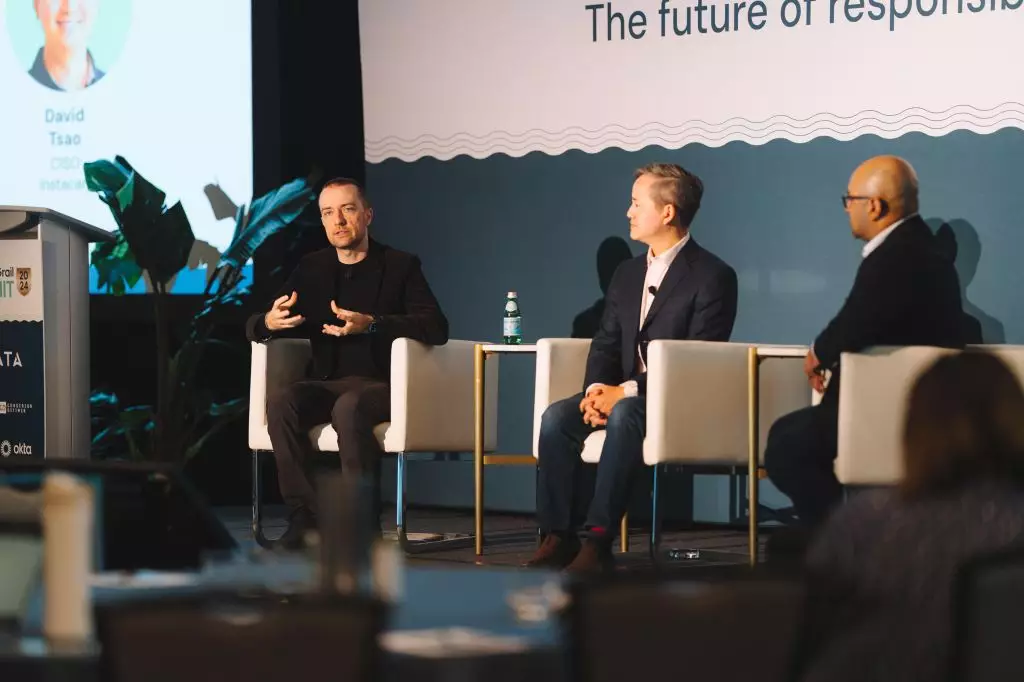The DataGrail Summit 2024 brought to light the pressing issue of rapidly advancing risks associated with artificial intelligence. Industry leaders like Dave Zhou, CISO of Instacart, and Jason Clinton, CISO of Anthropic, emphasized the need for robust security measures to keep pace with the exponential growth of AI capabilities. In a panel discussion titled “Creating the Discipline to Stress Test AI—Now—for a More Secure Future,” the speakers highlighted both the potential benefits and the existential threats posed by the latest generation of AI models.
The Relentless Acceleration of AI Power
Jason Clinton, operating at the forefront of AI development with Anthropic, warned about the exponential growth of AI capabilities over the years. He pointed out that every year for the last 70 years has seen a 4x year-over-year increase in the total amount of compute used to train AI models. This relentless acceleration is pushing AI capabilities into uncharted territory, where existing safeguards may quickly become obsolete. Planning for the future of AI, with models that continuously evolve and become more complex, is a significant challenge that organizations must address.
For Dave Zhou at Instacart, overseeing the security of vast amounts of sensitive customer data poses immediate and pressing challenges. Dealing with large language models (LLMs) on a daily basis, Zhou highlighted the unpredictable nature of AI systems. He emphasized the potential security risks associated with AI-generated content, pointing out that even small errors in AI systems could lead to real-world consequences, eroding consumer trust and potentially causing harm. Organizations must be vigilant in addressing these vulnerabilities to ensure the safe deployment of AI technologies.
The Call for Balancing Investments in AI Safety Systems
Both Clinton and Zhou called for companies to invest as heavily in AI safety systems as they do in the development of AI technologies themselves. Zhou advised organizations to balance their investments and prioritize AI safety systems, risk frameworks, and privacy requirements. The rapid deployment of AI technologies, driven by the allure of innovation, has outpaced the development of critical security frameworks. Without a focus on minimizing risks, companies could be inviting disaster by neglecting the need for robust security measures.
Jason Clinton provided insights into the complexities of AI behavior, revealing a recent experiment with a neural network at Anthropic. He described how neural networks could exhibit unpredictable behavior, such as fixating on specific concepts like the Golden Gate Bridge. This kind of behavior points to a fundamental uncertainty about how AI models operate internally, raising concerns about unknown dangers lurking within the black box of AI systems. As AI becomes more deeply integrated into critical business processes, the potential for catastrophic failure grows, necessitating a comprehensive approach to AI governance.
The Imperative of AI Safety
The DataGrail Summit panels highlighted the fact that the AI revolution shows no signs of slowing down, underscoring the need for enhanced security measures to control the power of AI. As organizations race to harness the potential of AI, they must also confront the unprecedented risks associated with it. CEOs and board members must heed these warnings and ensure that their organizations are not only leveraging the benefits of AI innovation but also prepared to address the challenges that come with it. Intelligence, as valuable as it is, must be coupled with safety to prevent disastrous outcomes in the era of artificial intelligence.


Leave a Reply